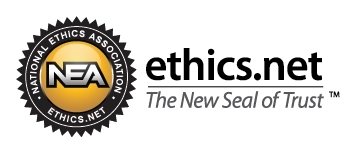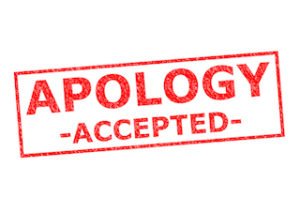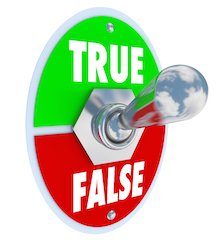Have you or your employees ever faced an angry customer? Then you’ll recognize the interaction as a “moment of truth” in the customer’s relationship with your company. If you resolved the person’s complaint, you’d likely retain the customer long term. But if you didn’t, the person might not only defect, but also bad mouth you to friends and colleagues, not to mention write nasty reviews on the Internet.
To avoid negative word of mouth, financial-services firms have learned to identify the crucial moments of truth in the customer lifecycle, to enhance the experience at each moment of truth, and to swiftly resolve problems before they get out of hand.
Viewing customer experience through the lens of moments of truth is hardly new. The concept originated over 20 years ago when Jan Carlzon, the CEO of SAS (the Swedish airline), wrote a book on the topic. Since then, it has become a core customer-service strategy for companies large and small, financial or non-financial. But guess what? Moments of truth have applications to business ethics, as well. Just as customer service reps must skillfully handle each moment of truth, financial advisors themselves must also anticipate the ethical dilemmas—the ethical “flash points”—that arise in working with clients and respond decisively.
Here’s a case in point. At a Minnesota Dairy Queen store, a blind man dropped a $20 bill on the floor as he was paying for his order. The woman behind him picked up the money and put it in her purse. When the woman reached the head of the line, the counter worker, Joey Prusak, age 19, asked her to return the bill to the blind man. She refused, claiming it was hers. When Joey explained that he saw what happened, the women still insisted it was her money. Finally, he gave her one more chance to turn over the money or she would have to leave. Again she refused. Saying he was “not going to serve anyone as disrespectful” as she, he ordered the woman out of the store. She responded by hurling torrents of verbal abuse at him.
The story doesn’t end there. Joey explained what happened to the blind man, then gave him $20 out of his own pocket. Another guest witnessed the scene and e-mailed the storeowner about Joey’s exemplary conduct. “(He) has forever sealed my fate as a life-long customer of your store,” the customer wrote. “Thank you for (your) outstanding customer service and an even better experience.”
What can we learn about Joey’s ethical moment of truth? It was a pivotal incident with consequences for all involved. If he let the dishonest woman keep the money, he would have validated her conduct, perhaps encouraging future acts of dishonesty. Plus, if other customers saw him doing nothing, Dairy Queen’s reputation might have suffered. However, if he got involved, he might have sparked a complaint from the woman or upset his supervisor. And he certainly would have had a big impact on the blind man, who would either get his money back or not. Of course, let’s not forget the impact on the witness, who became a customer for life because of Joey’s thoughtfulness and courage.
Finally, there’s Joey, who might have found it difficult to live with himself had he made the wrong decision. But fortunately for everyone involved, he made the right one.
Although this example occurred in the retail food industry, ethical moments of truth occur every day in financial services. An agent might be asked to cover up a prospect’s medical condition on a life insurance application. Or the child of a client might try to modify coverage without the parent’s permission. Or a wholesaler might pressure an advisor to sell an unregistered security in return for a higher payout. How advisors respond to such situation can prevent future problems, while preserving their precious reputations.
But here’s the rub. With customer-service moments of truth, you can train employees on how to recognize and handle them. You can also affect their attitudes by recruiting and selecting the right people and providing them with incentives to behave appropriately. With an ethical moment of truth, an employee’s upbringing, religious beliefs, and prior life experiences will largely predetermine his or her response. Still, if you employ assistants, the National Ethics Association suggests you mold their behavior by taking the following steps:
- Build and disseminate an agency ethics policy, making sure it defines appropriate conduct during customer disputes.
- Give employees authority to do the right thing without first asking for permission.
- When employees successfully handle an ethical moment of truth, document their experience and share it with other employees.
- Provide financial or non-financial rewards to ethical employees.
- Make sure your people understand that customers aren’t always right and that doing business with an abusive or dishonest customer isn’t required.
This last point is pivotal. Dairy Queen didn’t fire Joey for refusing to serve the unethical woman. Instead, his supervisor honored him by posting the e-mail publicly. Eventually, the story went viral on the Internet, and the young man became famous.
But here’s the moral of the story: a 19-year-old employee, having the courage of his convictions, stood up for a disabled person. Would your employees do the same? Would you?
For information on ethical sales practices, please visit the National Ethics Association’s Ethics Center at ethics.net.For information on affordable errors-and-omissions insurance for low-risk financial advisors, please visitEOforLess.com.













